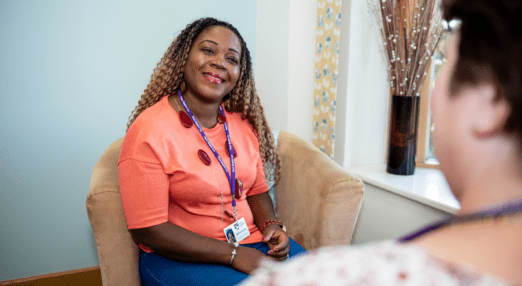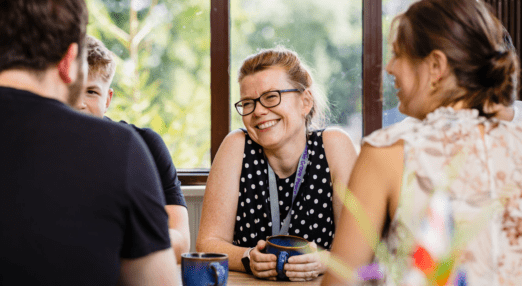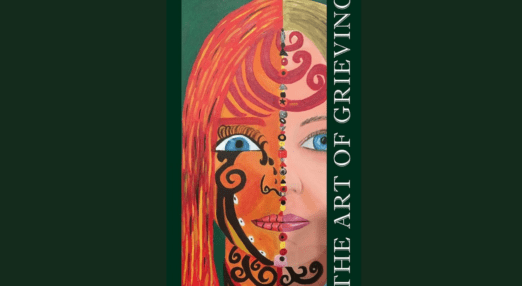Grief and milestones
When a loved one dies, certain dates can become particularly difficult to navigate. Where once perhaps full of joy, days like Christmas, birthdays and other events can feel overwhelmingly difficult to plan for and to manage.
Aaron Roberts, Manager of the Bereavement, Listening and Taking Therapies service at Rennie Grove Peace Hospice Care, says:
“Milestones serve as a reminder of the loss and can heighten feelings of intense sadness, loneliness or a sense of longing for the person who has died; triggering both positive and sad memories, associated with the person.”
These milestones, which include the anniversary of the death, are often extremely emotional and can trigger all sorts of difficult and painful feelings. Sometimes people believe that they should be feeling better by a certain point, because of the time that has passed. This is not true. There is no time limit on the feelings that can be provoked by milestones, explains Aaron:
“It’s completely natural for people to focus on and struggle with the ‘firsts.’ The first birthdays – their own and their loved one’s – or the first Christmas and anniversary spent without someone. They may have heard that the first milestone is always the hardest and put pressure on themselves to mark it in a certain way, but it isn’t always the first milestone that is the hardest.
“Milestones sometimes come so soon after a death that you haven’t even begun to process the loss before it comes around – and therefore, you might feel surprised, in future years, when a milestone triggers more intense feelings or feels more difficult to cope with.
Every single grieving process is different and how milestones impact one person will be completely different to any other person.”
Founder and host of popular podcast Widowed AF, Rosie Gill-Moss, who lost her husband at sea, said that the pressure she put on herself around milestones made it even more difficult:
“The first anniversary was the hardest, we made a pilgrimage to the closest coastal point to where Ben went missing. We wrote letters, put them in a bottle and threw them to him – it was windy and cold and just really sad.
“This year was six years since he died. I no longer want to force a positive onto that day so I have decided his birthday will become ‘his day’. We will have a family meal – an open invite to anyone who wants to join us, and we can talk about him, or not.”
She found that finding a way that felt right for them was important. Rosie also sends her mother-in-law a card every Mother’s Day, on Ben’s birthday and on the anniversary of the day he died.
Aaron’s top tips for dealing with grief and milestones:
- Try to acknowledge the emotions and accept the feelings as they arise. Be open and honest and don’t push yourself to do too much or anything that will add pressure to what might already be a difficult day.
- Don’t feel pressured by other people’s opinions of how you should be approaching the milestone. Focus on what feels right to you internally.
- Give yourself the space and time you need to be able to process your feelings around the milestone
- Reaching out to friends, family and supportive groups to talk about these feelings can help lessen the impact. If you need extra support, reach out to organisations that can help, like our Bereavement Listening and Talking Therapies service.
Aaron emphasises that although milestones and firsts can be difficult, they can also be a time to process loss and celebrate the life of the person who has died.
“We hear a lot about milestones being difficult, but it can also be beneficial to take the opportunity to celebrate the person who has died. Some people celebrate their loved one’s life by going somewhere they enjoyed, lighting a candle in a place of worship or at home, or planting a tree.
“Others find that having a focus or a target can help, so they channel their energy into planning a charity event, a caregiving festival or an annual sports event to raise money for an organisation that has helped them.”
Rennie Grove Peace is here to help. We offer a range of dedicated bereavement services for adults in Buckinghamshire and West Hertfordshire, including one-to-one listening and counselling, a guided group programme, drop-in bereavement support groups and community-based Compassionate Cafes where you can drop in at various locations and times each month.
-

Bereavement Support Programme
Connect with others as you together explore your thoughts and feelings about your loss in this guided eight-week programme.
Read more
-

Compassionate Cafés
Our Compassionate Cafés are drop-in sessions that provide a safe space for people who have experienced bereavement to come along for a cuppa, to connect and have a chat with others who understand.
Read more
-

The Art of Grieving
The Art of Grieving exhibitions provide artists with a forum to share work related to bereavement, loss and death.
Read more




